When you hear “national security,” you may think of competition from adversaries, the debate over the border, or the threat of an impending war. But Ted Getschman, a Nevada Braver Angels Alliance co-chair and contractor for the U.S. Department of Defense and Department of Intelligence Agency, believes we need a more expansive view.
One of the biggest misconceptions about the role of national security? People think it only encompasses the military. But Ted said that isn’t true. “National security is the ability for a country to keep itself safe AND its systems producing,” he said. “It’s a multi-faceted concept.” Think: trade and education – two issues that might not outwardly seem related. Both play a role in our country’s stability, and therefore, national security.
A country’s form of government also determines what keeps it safe and what could destabilize it. For example, when a country is ruled by a single person, or a dictator, the government may believe the biggest national security threat would be someone taking out the leader. “But democracy is different,” Ted said. “You break a democracy by breaking people apart.”
“You break a democracy by breaking people apart.”
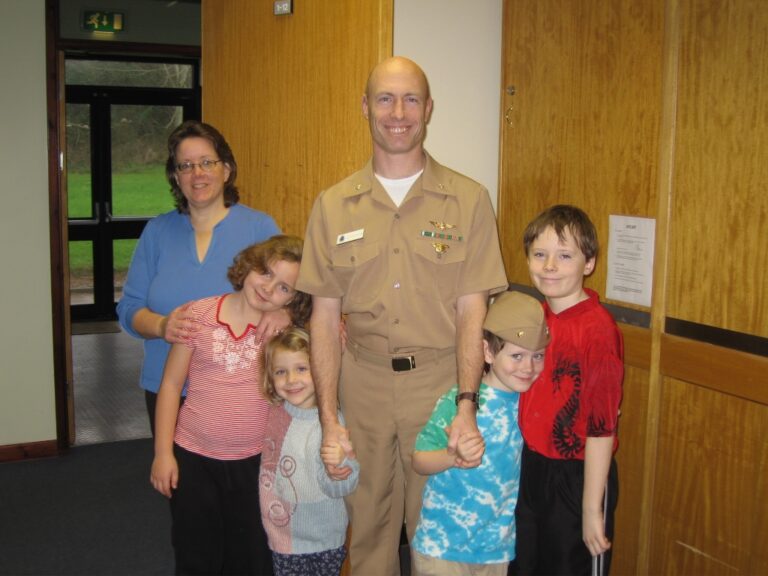
In a democracy like the United States, one of the most important dimensions of our long-term safety and stability is our ability to trust our leaders, institutions, and especially, each other. And right now, our trust is at historic lows. According to the 2022 Edelman Trust Barometer, “distrust is now society’s default emotion,” with 6 in 10 saying their tendency is to distrust something until they see evidence it is trustworthy. From Ted’s perspective, without restoring trust, “we won’t be able to respond to major problems in a timely manner.”
While there has been much said about the political division in this country, Ted isn’t sure whether Americans appreciate how our inner turmoil threatens our country’s security. “If you believe your nation is falling apart, then it’s not secure,” Ted said. And our adversaries take notice. When it comes to disrupting another country’s cohesion, “you find the cracks that already exist and then make them deeper,” Ted said. “It’s a known tactic.”
Once the seed of conflict is planted, more people will jump in, not knowing the fight was created by a foreign adversary for this explicit purpose.
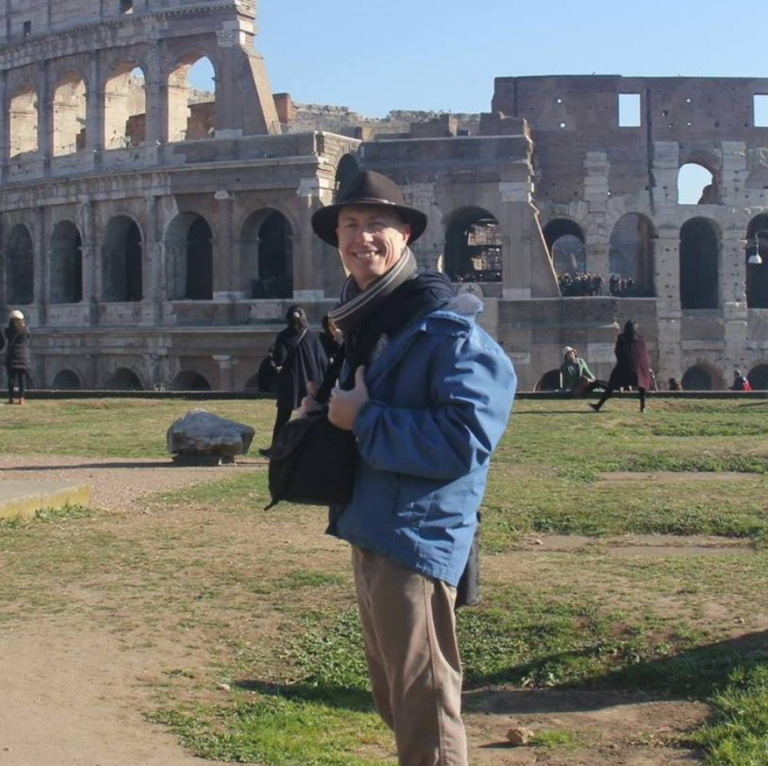
Ted gave the example of Russian troll sites, where just one person can tap into societal “cracks” to manufacture a full-blown fight on social media. Here’s how: first, they will create a fake account and post an inflammatory piece of content advocating for one side. Then, while posing as someone different, they will generate an equally provocative response. Once the seed of conflict is planted, more people will jump in, not knowing the fight was created by a foreign adversary for this explicit purpose. And just like that, “one person can cause chaos in the United States.”
While the state of politics can feel dire, Ted believes it’s fixable if we understand the driving forces of division. He said one issue is our inability to plan long-term. Given the format of our system, the people who are elected to determine our country’s direction change every few years. This means any progress – even on the problems we broadly agree on – is either torn down after a term or incapable of being addressed altogether.
Ted said this part of the problem has less to do with voters or politicians, and more to do with the system. At this point in the conversation, he jumped up like a coach during halftime and grabbed a whiteboard to map out his idea of a better path forward.
“Is the great experiment – the Golden Age of democracy – over? No. It hasn’t even begun.”
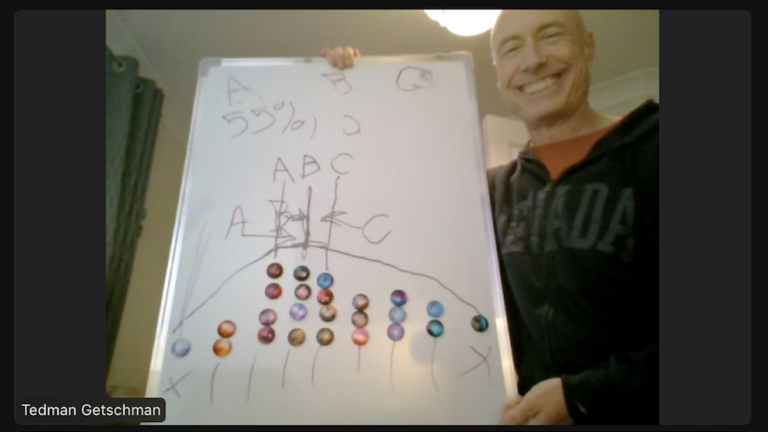
Ted explained how we’ve experienced division in our country since its inception. “Elections from the beginning had all the controversy and excitement we have today,” he said. We even went to war with each other over our differences. So, despite the fact the people, politicians, parties, media, and culture have all changed, the division has remained.
Ted believes there’s an inherent flaw in our voting method which is driving us apart and away from the majority opinion. “We don’t have a system where all different viewpoints can come together,” Ted said. Instead, people are forced to pick a side, even if it doesn’t represent their perspective. His solution is “MaxVoting,” which he said would shift our system from “majority rule” to “majority opinion rule” by incentivizing politicians to be in touch with what most people want. Through this, “we could be moving systemically to rapidly solve issues,” he said.
But there’s another dimension of division that could work against this system-based solution: our inability to speak with those with whom we disagree. Ted said we might agree on 48 out of 50 issues, but if we don’t understand how to talk about those two issues where we diverge, they could drive us apart. “The need to develop this skill never ends,” he said. “But it doesn’t come naturally.”
“Braver Angels plays a role in protecting our national security because it teaches people how to communicate even when they don’t have the same perspective.”
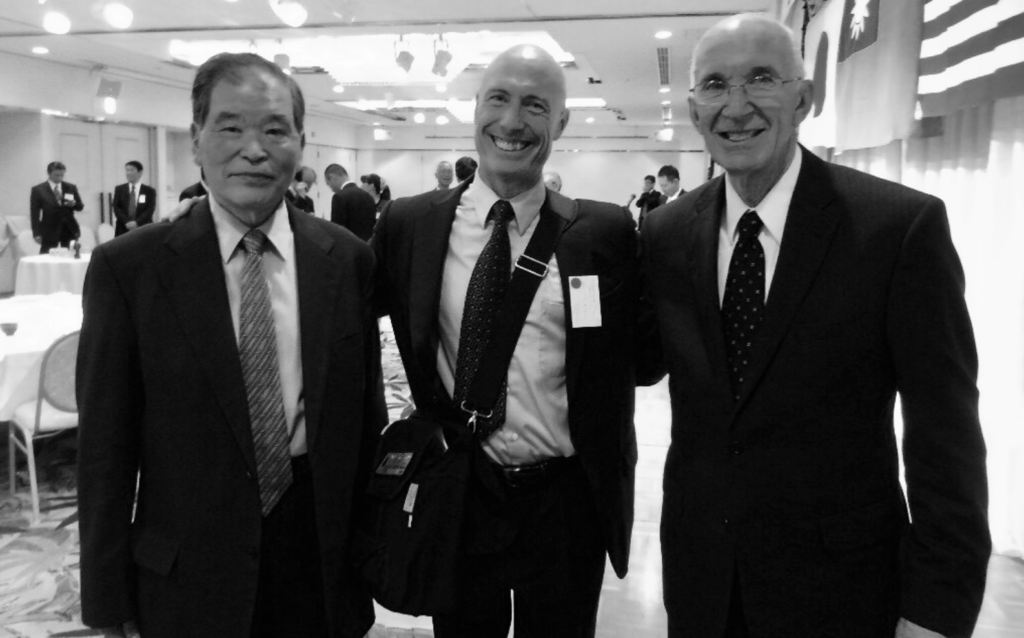
That’s where Braver Angels comes in. “Braver Angels plays a role in protecting our national security because it teaches people how to communicate even when they don’t have the same perspective,” Ted said. “When you learn to listen and feel you’re being listened to, it’s hard to get angry.”
Instead, something else happens: you build trust with one another. And that’s the cornerstone of our country’s long-term stability. Ted said “when you put trust back into democracy, you can face difficult problems,” because a tightly-knit society is harder to penetrate. “This is how you prevent foreign governments from pushing buttons, elevating extremism, and driving people further apart.”
While Ted’s career has been focused on managing threats from the outside, he now wants to direct his energy toward mending the United States from within. “The biggest thing I want people to understand is that they do not know how good America could be,” he said. “First, we need to fix the system and fix interpersonal communication so we can hear each other.”
“So, is the great experiment – the Golden Age of democracy – over? No. It hasn’t even begun,” Ted said. “We know what causes division and we know what cures division. We have the knowledge, it’s just a matter of how fast we get there.”
To learn more about Braver Angels alliances like the one Ted leads in Nevada, go to this link. To suggest more stories I could report from the Braver Angels community, send me a note at gtimmis@braverangels.org.
— Gabriella Timmis, Braver Angels Field Reporter

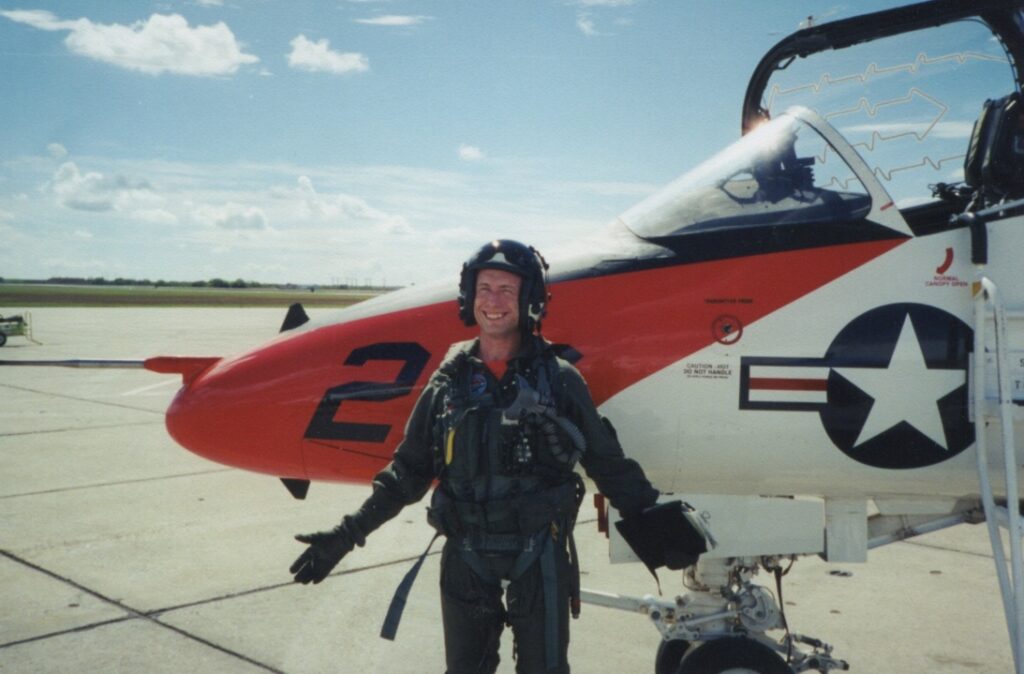
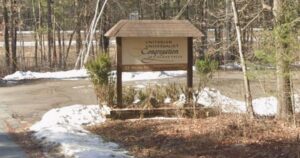

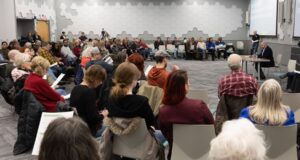
1 thought on “‘Braver Angels plays a role in protecting our national security’: A military intelligence analyst shares his perspective”
Hi Gabriella. Do you have an email address for Ted Getschman? I’d like to send him some information that might help his good work in Nevada – particularly as it relates to his national security focus for Braver Angels.
Many Thanks,
Ken Powley
CEO, Co-Founder
Team Democracy
http://www.teamdemocracy.org